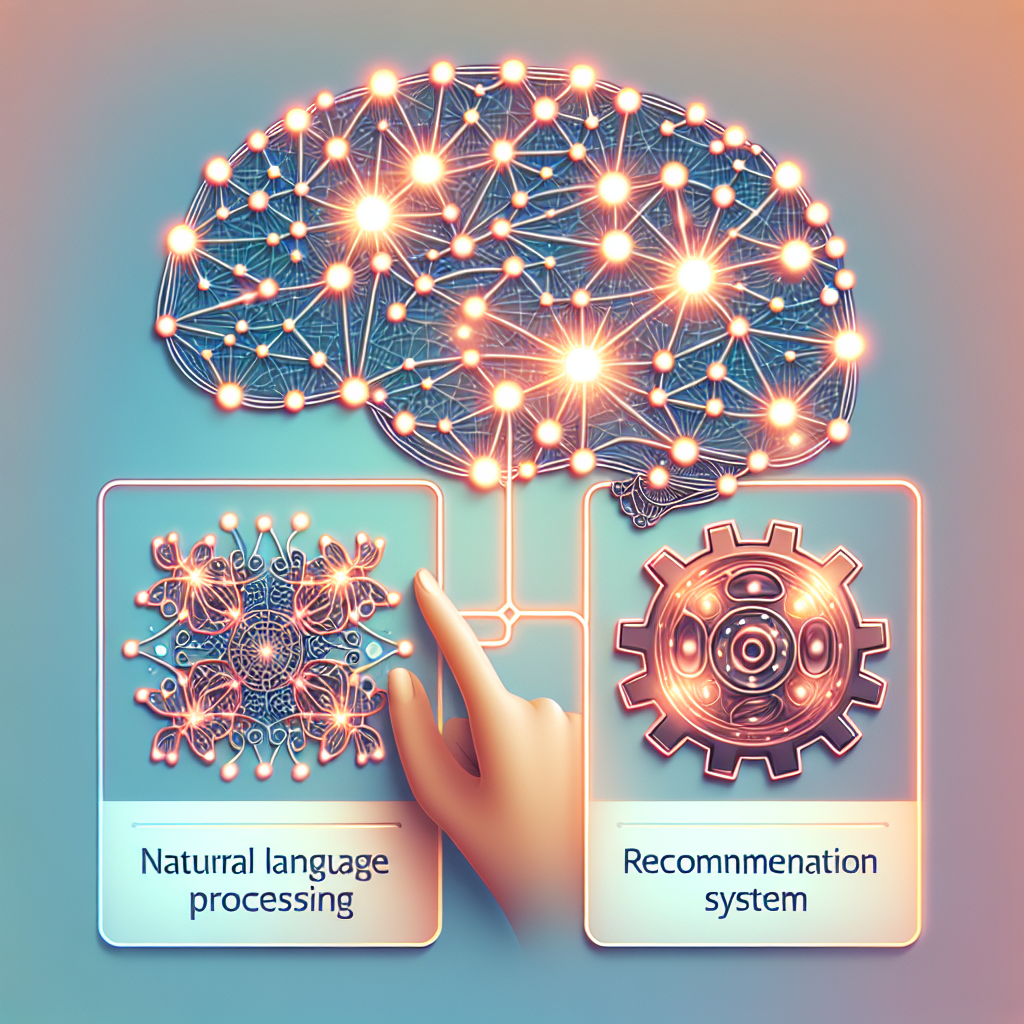Natural Language Processing (NLP) is a branch of artificial intelligence that focuses on the interaction between computers and humans using natural language. It involves the understanding, interpretation, and generation of human language through machine learning algorithms. NLP has a wide range of applications, one of which is in recommendation systems.
Recommendation systems are algorithms that provide personalized suggestions to users based on their preferences and behavior. These systems are widely used in e-commerce, social media, streaming platforms, and many other applications to help users discover new products, services, or content that they may be interested in.
NLP plays a crucial role in recommendation systems by enabling them to understand and analyze textual data such as reviews, product descriptions, user comments, and other forms of natural language input. By incorporating NLP techniques, recommendation systems can extract valuable insights from unstructured text data and provide more accurate and relevant recommendations to users.
There are several ways in which NLP is used in recommendation systems:
1. Sentiment analysis: NLP techniques can be used to analyze the sentiment of user reviews and comments about products or services. By understanding the sentiment expressed in text data, recommendation systems can better assess user preferences and make more personalized recommendations.
2. Text summarization: NLP algorithms can be used to summarize long product descriptions, reviews, or other text data into shorter and more concise formats. This can help recommendation systems process and analyze large amounts of textual information more efficiently.
3. Named entity recognition: NLP techniques can be used to identify and extract named entities such as product names, brands, and categories from text data. By recognizing these entities, recommendation systems can better understand the context of user preferences and tailor recommendations accordingly.
4. Topic modeling: NLP algorithms can be used to identify topics or themes within text data. By clustering similar content together, recommendation systems can categorize products or services more effectively and provide more relevant recommendations to users.
5. Natural language generation: NLP techniques can be used to generate natural language responses or recommendations based on user input. This can enhance the user experience by providing more interactive and engaging recommendations.
Overall, NLP plays a crucial role in recommendation systems by enabling them to process and analyze textual data more effectively, extract valuable insights, and provide more personalized recommendations to users.
FAQs:
1. How does NLP improve the accuracy of recommendation systems?
NLP techniques enable recommendation systems to analyze and understand textual data such as user reviews, comments, and product descriptions. By extracting valuable insights from unstructured text data, recommendation systems can better assess user preferences and behavior, leading to more accurate and relevant recommendations.
2. Can NLP be used in real-time recommendation systems?
Yes, NLP can be used in real-time recommendation systems to process and analyze text data on-the-fly and provide timely and personalized recommendations to users.
3. What are some challenges associated with using NLP in recommendation systems?
Some challenges associated with using NLP in recommendation systems include handling large volumes of text data, ensuring the accuracy and relevance of recommendations, and dealing with the complexity of natural language processing algorithms.
4. How can businesses benefit from incorporating NLP in recommendation systems?
Businesses can benefit from incorporating NLP in recommendation systems by providing more personalized recommendations to users, improving user engagement and satisfaction, increasing sales and conversions, and gaining valuable insights into user preferences and behavior.
In conclusion, Natural Language Processing (NLP) plays a crucial role in recommendation systems by enabling them to understand and analyze textual data, extract valuable insights, and provide more personalized recommendations to users. By incorporating NLP techniques, recommendation systems can improve the accuracy and relevance of their suggestions, leading to a better user experience and increased engagement. Businesses can benefit from incorporating NLP in recommendation systems by providing more personalized recommendations, improving user satisfaction, and gaining valuable insights into user preferences and behavior.

